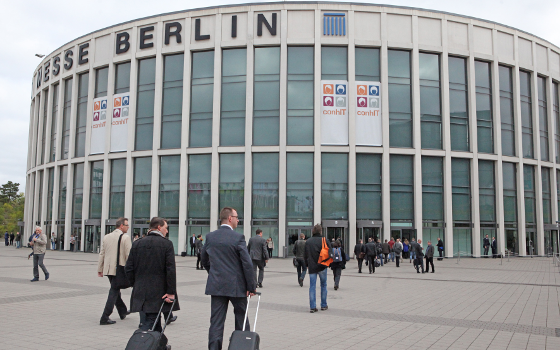From 25 to 27 April 2017, taking place on the Berlin Exhibition Grounds for the tenth time, conhIT, Europe's leading event for health IT, will be showing how modern IT improves public healthcare and helps institutions compete on the market. In 2017, under the heading of '10 years of conhIT - combining health and innovative IT', key topics will include digitalisation in the health industry and hospitals, eHealth and apps, IT strategies and IT management, information and IT security, intersectoral communication and the Internet of Things.
"In the future Germany's healthcare system will be unimaginable without IT," said Ekkehard Mittelstaedt, managing director of the German Association of Health IT Vendors (bvitg), the organisers of conhIT. "Digitalisation leads to better medical care, in terms of both cost efficiency and quality. In order to exploit the opportunities it offers we need a culture of change and innovation. Digital health, which means connecting health providers as well as patients gaining mobile access to their health records, will be the big driving force in the future. conhIT is the right place for discussing specific issues and topics in that context. That is why it is such an exciting event for decision-makers in business and IT management."
By combining the Industrial Fair with Congress and Academy topics as well as various Networking events conhIT provides the ideal platform for finding out about innovations, trends and the industry's future. Compared to last year, bookings for the Industrial Fair have risen again, so that conhIT 2017 will open with over 450 exhibitors on a display area covering more than 18,000 m². Preparations are also well under way for the fascinating programme of Congress, Academy and Networking events. New: in 2017, for the first time, all tickets to conhIT are valid for admission to the Congress.
For further information, please visit:
http://www.conhit.com
About conhIT - Connecting Healthcare IT
conhIT targets decision-makers in IT departments, management, in the medical profession, nursing, doctors, doctors' networks and medical care centres who need to find out about the latest developments in IT and healthcare, meet members of the industry and make use of opportunities for high-level advanced training. As an integrated event, over a period of three days conhIT combines an Industrial Fair, a Congress and Networking Events that are of particular interest to this sector. Launched in 2008 by the German Association of Healthcare IT Vendors (bvitg) as the meeting place for the healthcare IT industry and organised by Messe Berlin, this event recorded 451 exhibitors and around 9,000 visitors in 2016 and has become Europe's leading event for the healthcare IT sector.
conhIT is organised in cooperation with the following industry associations: the German Association of Healthcare IT Vendors (bvitg), the German Association for Medical Informatics, Biometry and Epidemiology (GMDS) and the German Medical Informatics Professional Association (BVMI). The German Association of Hospital IT Managers (KH-IT) and the Chief Information Officers of University Hospitals (CIO-UK) provide contributions to the subject matter.
